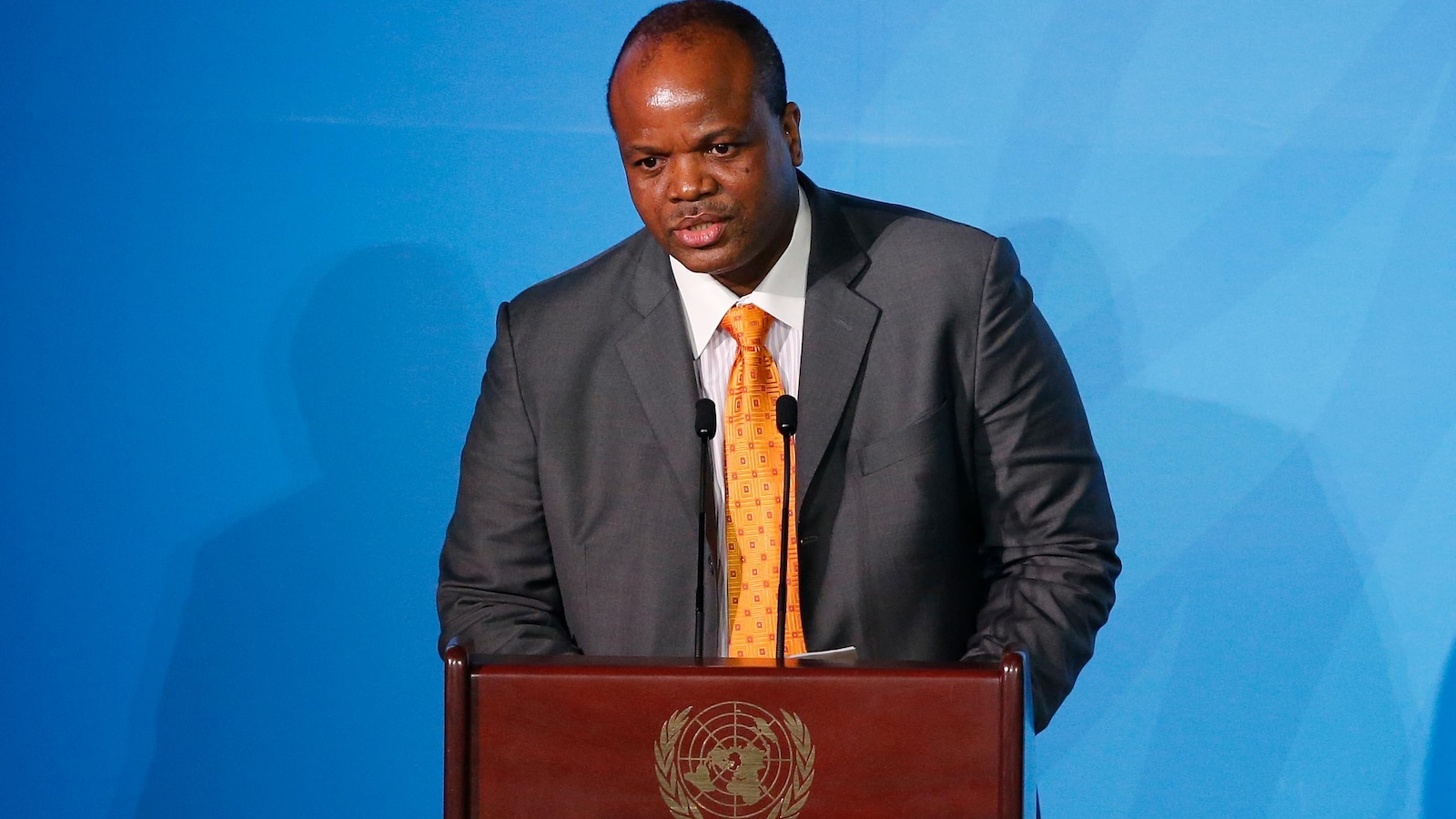ARTICLE AD BOX
The Senate plans to ignore President Trump’s request to slash $400 million from a global AIDS prevention program as it takes up a broader package of spending cuts that he asked for this week.
Senate Republicans said they will amend the House-passed rescissions package of $9.4 billion in foreign aid and public broadcasting cuts to restore $400 million for the President’s Emergency Plan for AIDS Relief, or PEPFAR.
The substitute amendment, if it passes, will reduce the rescissions package to $9 billion.
Senate Majority Leader John Thune said those cuts still represent “a significant down payment on getting rid of waste, fraud, abuse in our government.”
“There was a lot of interest among our members in doing something on the PEPFAR issue, and so that’s reflected in the substitute,” the South Dakota Republican said. “And we hope that if we can get this across the finish line in the Senate, that the House would accept that one small modification.”
White House Office of Management and Budget Director Russell Vought said the White House is comfortable with the Senate restoring the PEPFAR funding cut.
“This is still a great package, $9 billion; substantially the same package,” he said. “The Senate has to work its will. And we’ve appreciated the work along the way to get to a place where they think they’ve got the votes.”
House Speaker Mike Johnson, Louisiana Republican, earlier Tuesday had urged the Senate to pass the rescissions package without changes, calling the $9.4 billion in cuts “low-hanging fruit.”
The cuts represent roughly 5% of the $190 billion in government savings identified by the Department of Government Efficiency. The modified rescissions package, if it clears both chambers by Friday’s deadline, would be the first DOGE cuts codified by Congress.
“The egregious abuses that the DOGE analysis and audits uncovered, we’ve got to claw that back,” Mr. Johnson said, citing foreign aid programs that the rescissions measure would cut as a prime culprit. “We can’t fund transgender operas in Peru with U.S. taxpayer dollars.”
Mr. Trump warned last week that he would not endorse or provide political support to any Republicans who vote against the rescissions package.
But it’s still an open question whether the Senate can pass the reduced package of $9 billion in cuts — $7.9 billion of which would come from foreign aid accounts. A first procedural test vote is expected Tuesday night.
Multiple Senate Republicans still have issues with cuts that would not be restored in the substitute amendment, including a $500 million reduction in global health funding and a $1.1 billion cut to the Corporation for Public Broadcasting (CPB) that would end taxpayer funding for PBS and NPR but also hit local affiliates.
“My concerns have not yet been addressed,” Sen. Lisa Murkowski told The Washington Times.
The Alaska Republican is worried about the broadcasting cuts’ impact on rural Alaskan outlets and the reach of the global health funding cuts.
Senate Appropriations Chair Susan Collins likewise noted the “other problematic parts of the rescissions package” that are not addressed in the substitute amendment. But the Maine Republican said she is “thrilled” that the PEPFAR funding would be restored as she sought.
She said she would still like to see some changes to the broadcast funding cut, given her concerns about its impact on Maine affiliates.
Ms. Collins also lamented that Mr. Vought, who attended Senate Republicans’ weekly lunch on Tuesday, has yet to provide “detailed account information” on which foreign aid programs will be slashed.
“It’s unclear to me how you get to $9 billion because he’s listed a number of programs he wants to quote ’protect,’” Ms. Collins said.
In particular, she and several other senators have wanted more detail on the $500 million cut to global health funding.
“It couldn’t be more clear,” Mr. Vought said when the Times asked if he was able to provide senators with those details. “It comes from family planning in global health. That’s the only reduction in global health.”
Mr. Thune said several Republicans were worried the global health cut could affect funding for Gavi, an organization that works in low-income countries to help vaccinate children against infectious diseases. But Mr. Vought assured senators the cuts would not hit Gavi.
Before the lunch, Mr. Vought worked on a side deal to win over South Dakota GOP Sen. Mike Rounds, who had concerns the broadcasting cuts would decimate tribal radio stations in his state.
Mr. Rounds secured a promise from Mr. Vought and OMB that they would transfer $9.4 million within the Interior Department to a grant program that will provide funding for 28 Native American radio states across nine states.
Four of those stations are in South Dakota and “nobody [is] left behind,” Mr. Rounds said.
“I can vote for the rescissions package now that they have taken care of our Native American tribes and those radio stations,” he said.
Ms. Murkowski said that move doesn’t go far enough for her.
“If you take care of your tribal stations, what about all my other non-tribal stations? What do they do?” she said. “No, I don’t have answers to my concerns. And no, I’m not working on a side deal.”

 10 hours ago
17
10 hours ago
17








 English (US) ·
English (US) ·